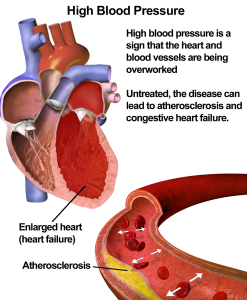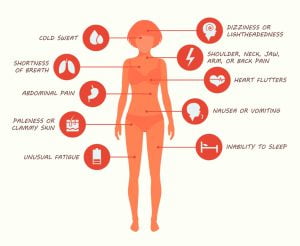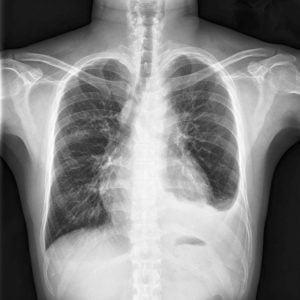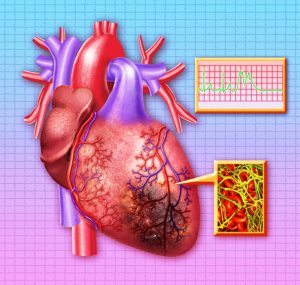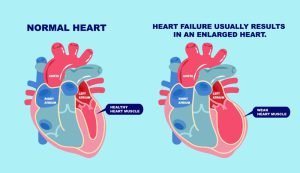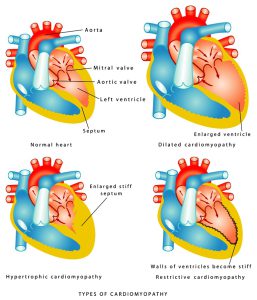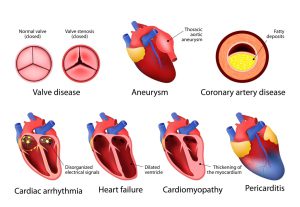Browsing: Enlarged Heart Graphics
Comprehensive Information, Resources, and Support on Enlarged heart
In the condition of enlarging and thickening of muscle, the heart finds it harder to pump blood and deliver the blood to the rest of the body. Following symptoms of a heart defect makes the heart work harder, such as cardiomyopathy, heart valve problems, or high blood pressure. High blood pressure results in enlargement of the left ventricle (and atria) which causes the heart muscle to weaken. If a person is suffering from blood pressure measuring higher than 140/90 millimeters of mercury, this increases the risk of developing an enlarged heart.
Heart attack occurs due to blockage of blood flow when buildup of fat or cholesterol forms plaque in the arteries that feed the heart. Heart attack can be fatal and therefore it is important to recognize the signs of a heart attack. Common signs of a heart attack are pale skin, discomfort, pressure, squeezing, fullness in the chest which lasts several minutes or resolves and then returns again, pain in the arms, neck, back, abdomen, stomach, or jaw, inability to sleep, and sudden shortness of breath. If a person has enlarged heart, it can’t pump blood efficiently and this leads to heart attack or even cardiac arrest.
Cardiomegaly is a medical condition in which the heart is enlarged. An enlarged heart is a layman’s term to represent a condition when the overall size of the heart is bigger than it should normally be. An enlarged heart may have several causes. But it usually occurs as a result of high blood pressure or coronary artery disease. It may not pump blood effectively, which can cause congestive heart failure. Sometimes, it improves over time, but in most cases a person with an enlarged heart need life-long treatment with medications.
Heart attack occurs when the supply of blood to the heart is suddenly blocked. It is also known as myocardial arrest as “myo” means muscle, “cardial” means heart, and “infarction” means death of tissue due to lack of blood supply. Cardiac arrest occurs due to the formation of blood clot in blocked arteries when plaque bursts. Muscle damage occurs resulting in a condition called enlarged heart. An enlarged heart is a known cause of heart failure as the heart doesn’t pump blood as it should.
Heart failure usually results in an enlarged heart as shows in this picture. Your heart can become enlarged because of a congenital problem or conditions such as high blood pressure or a heart attack that puts stress on the heart. It is a serious condition, but there are usually signs that shows that something is going wrong long before its diagnosis.
Cardiomyopathy is not one disease but it refers to a group of diseases of the heart muscle. These diseases can have different causes, signs and symptoms, and may require different treatments. In cardiomyopathy, the heart muscle becomes enlarged, thick or rigid.
Heart disease is a term that covers a range of disorders that affect the heart. Coronary artery disease is the most common type of heart disease.
ADVERTISEMENT




